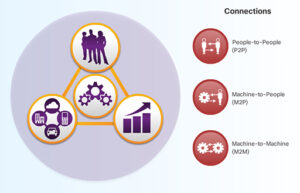Simplify Financial Management: What You Need to Know About Essential Bookkeeping Software
In today’s fast-paced business world, efficient financial management is crucial for success. Bookkeeping software plays a pivotal role in streamlining this process, allowing businesses to accurately track their finances, manage expenses, and make informed decisions. In this comprehensive guide, we’ll delve into the world of bookkeeping software, exploring its importance, functionality, and benefits.
What is Bookkeeping Software?
Bookkeeping software is a digital tool designed to automate and simplify the process of recording financial transactions. It replaces traditional manual methods, such as ledgers and spreadsheets, with user-friendly interfaces and automated processes. By leveraging technology, bookkeeping software helps businesses maintain accurate financial records, track income and expenses, manage invoices, and generate essential financial reports.
The Importance of Bookkeeping Software
Effective financial management is the cornerstone of every successful business. Bookkeeping software offers several key benefits that contribute to this:
- Accuracy: Manual bookkeeping is prone to errors, which can lead to discrepancies in financial records. Bookkeeping software automates calculations and data entry, significantly reducing the risk of mistakes.
- Time Efficiency: With bookkeeping software, tasks that would typically take hours to complete manually can be done in a fraction of the time. This frees up valuable resources that can be allocated to other essential aspects of business operations.
- Financial Insights: By providing real-time access to financial data and reports, bookkeeping software empowers businesses to make informed decisions. It enables them to identify trends, analyze performance, and forecast future financial outcomes.
- Compliance: Tax regulations and accounting standards are constantly evolving. Bookkeeping software helps businesses stay compliant by automating tax calculations, generating compliant financial reports, and facilitating easy access to audit trails.
Types of Bookkeeping Software
There are various types of bookkeeping software available, each catering to different business needs and preferences:
- Cloud-based: Cloud-based bookkeeping software operates on remote servers accessed through the internet. It offers scalability, accessibility, and automatic updates, making it an ideal choice for small to medium-sized businesses.
- Desktop: Desktop bookkeeping software is installed and operated locally on a computer. While it may offer greater control over data, it lacks the accessibility and collaboration features of cloud-based solutions.
- Freemium: Freemium bookkeeping software offers basic features for free, with the option to upgrade to a premium version for advanced functionality. This model allows businesses to test the software before committing to a paid subscription.
- Industry-specific: Some bookkeeping software is tailored to specific industries, such as retail, healthcare, or construction. These solutions often include industry-specific features and integrations to address unique business requirements.
Key Features of Bookkeeping Software
Bookkeeping software typically includes a range of features designed to simplify financial management. Some common features include:
- Income and Expense Tracking: Allows users to record and categorize income and expenses accurately.
- Invoicing: Enables businesses to create and send professional invoices to clients and customers.
- Bank Reconciliation: Facilitates the matching of transactions between a company’s bank statements and accounting records.
- Financial Reporting: Generates essential financial reports, such as balance sheets, profit and loss statements, and cash flow statements.
- Integration: Integrates with other business tools and software, such as payment processors, CRM systems, and payroll services.
Choosing the Right Bookkeeping Software
When selecting bookkeeping software for your business, consider the following factors:
- Scalability: Choose a solution that can grow with your business and accommodate increasing transaction volumes.
- Ease of Use: Opt for intuitive software with a user-friendly interface to minimize training time and ensure adoption by your team.
- Cost: Evaluate the pricing structure, including subscription fees, add-on costs, and potential hidden charges.
- Features: Identify the features that are essential for your business operations and ensure that the software offers them.
- Customer Support: Select a vendor that provides responsive customer support and resources, such as tutorials and documentation.
Conclusion
Bookkeeping software revolutionizes the way businesses manage their finances, offering efficiency, accuracy, and valuable insights. By automating mundane tasks and providing real-time access to financial data, it empowers businesses to make informed decisions and achieve their financial goals. Whether you’re a small startup or a multinational corporation, investing in the right bookkeeping software can be the key to unlocking success in today’s competitive landscape.










Post Comment